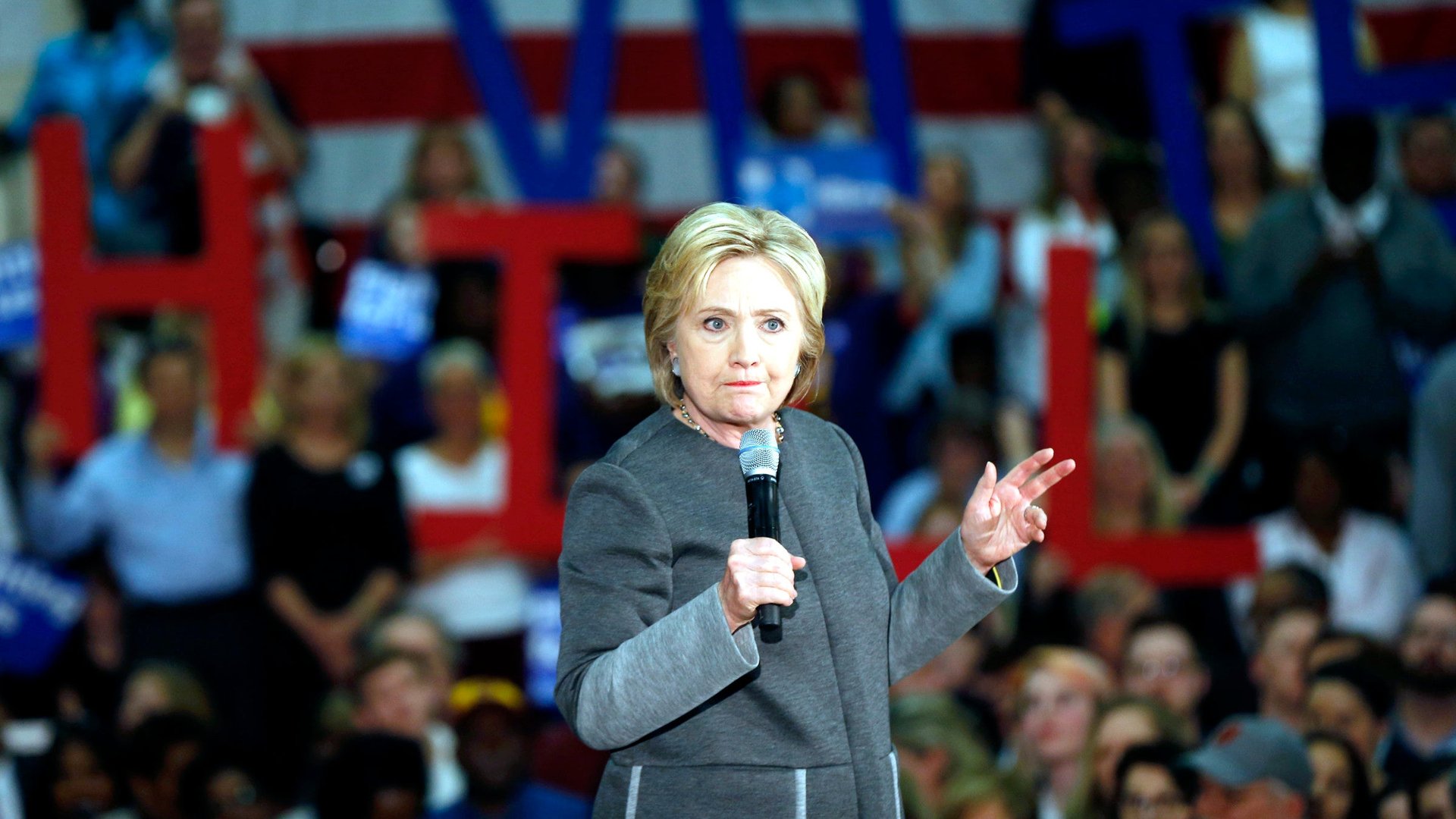Here’s how to tell if Hillary Clinton wins the Democratic presidential nomination today
Can Hillary Clinton seal the deal on Super Tuesday?


Can Hillary Clinton seal the deal on Super Tuesday?
In twelve states, Democratic primary voters will apportion some 864 delegates between the former secretary of state and senator Bernie Sanders, about 18% of the nationwide total. If Clinton is able to win a significant majority today, her campaign could open up an insurmountable lead on Sanders—unless voters’ view of the race changes dramatically in the months ahead.
Clinton’s campaign has been trying to learn from the mistakes it made in 2008, when she ran against then-senator Barack Obama. One of the key lessons is to deploy your resources to earn the most delegates from states that award them proportionally.
We’ve been following a delegate counter developed by David Wasserman at the Cook Political Report that projects the state-by-state results needed for each candidate to win 50% of the total, based on past results. And Sanders is already falling behind—especially considering ”super-delegate” party officials, who get to vote for whoever they please. They are backing Clinton by a 455 to 22 margin.
After Clinton’s surprisingly huge victory in South Carolina, Sanders has even more ground to make up. He needs to win slightly more than half the total delegates available today to stay on the path to a break-even finish. But public opinion polling shows that Clinton will prevent him from hitting that goal, especially in the most populous, delegate-rich states:
(¯_(ツ)_/¯= lack of consistent polling sample)
If Clinton manages to run up the score in the big states, it is the beginning of the end for Sanders’ insurgent candidacy. Each time he falls further behind, he will need to do even better in future contests. One magic number? If Clinton can earn more than 496 delegates today, which Wasserman projects, then Sanders will need to win 53% of the delegates in the remaining elections simply to tie Clinton—and based on what we’ve learned in the Democratic primary so far, that just isn’t likely.
That said, Sanders can still emerge from today with momentum if he can claim success on a few key metrics:
- Keeping the results close in Texas, where he can build a narrative around support from young Hispanic voters as he did in the Nevada caucuses.
- Proving his chops with Virginia’s all-important suburban voters to limit the delegate damage there.
- A win in Massachusetts, which would be nice but also expected.
- Victories in the unpredictable Colorado and Minnesota caucuses will convince his supporters (and donors) he still has a path to victory.
If he can do all that, the race may still be close enough that another strong debate can make the difference. But with every delegate he misses today, his margin of error is shrinking away.